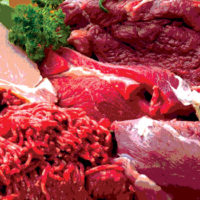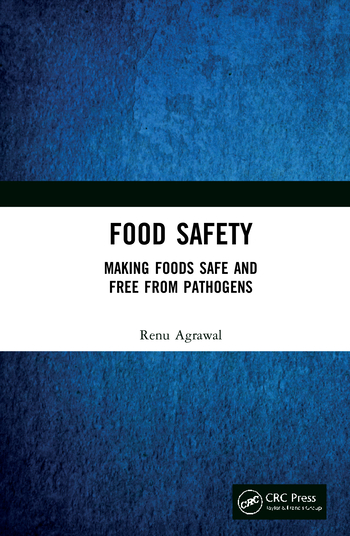Lessons Learned from Military History Aid Food Defense

Food defense is at its best when it is proactive. When a food defense plan fails, all that is left is damage to the brand, the cleanup, remediation and often litigation. Adversaries, both inside and outside food production and processing corporations, are for real and not the result of overactive imaginations. Corporate decision makers don’t have to look far to find people or groups who really do want to damage their company or brand, steal its secrets and take a share of profits for their own.
A common reaction when things go bad is for corporations to try and set blame. Someone had to be responsible. Somebody had to be at fault. As painful as the truth often is, looking back at corporate disasters frequently reveals just that. Someone is indeed at fault and therefore partially responsible—because they enabled an adversary to succeed. Corporate decision makers who chose to ignore the warnings, but do so very much at the peril of the company. Eventually, the decision to ignore impending threats enables those threats to mature, causing an impact of greater magnitude than had they been dealt with the threat more expeditiously.
Military Lessons Learned
As odd as it may seem, food defense practitioners could learn a lot by studying history. After commemorating the 75th anniversary of Pearl Harbor, that example of ignoring maturing threats might be a good place to start. The article “The First Attack: Pearl Harbor, February 7, 1932” dissects the warnings that were ignored. To save time for busy food defense personnel and corporate decision makers, I have summarized the lessons learned and translated the lessons into “food defense speak:”
1. War was expected with Germany and Japan, but President Roosevelt wanted to concentrate on Germany first, fearing that seeking to defeat Japan would divert efforts needed to defeat Germany.
Translation: The best-laid plans always fall when realities strike. Planning for one contingency while ignoring another gives time for the other threat to mature to the point that it becomes pre-eminent. In the end, both threats materialize, stretching resources to very uncomfortable limits.
2. As soon as President Roosevelt promised the American people that “…no American boys would be sent to fight in Europe,” the chief of naval operations and no less than Albert Einstein warned him that if the United States failed to help Great Britain in defeating Germany, then Europe, Africa and the Middle East would be lost.
Translation: Be very careful what you promise to company officials, stockholders, etc. Reality bites. This is a slight variation to what was said in lesson one.
3. Before declaring war on Germany, the United States began patrols in the North Atlantic and Caribbean to discourage German U-boat operations. The America First committee widely criticized the president for being provocative toward Germany.
Translation: Ignore the critics and do what is right for the company. Although the critics may howl, it is not they who will have to deal with the consequences, should right decisions not be made. Second lesson: Prepare the battlefield for future operations. Putting things in place so they can be used to full effect eventually is often the best option when difficult decisions have to be made.
4. American code breakers had broken many of the codes being used by both Japan and Germany. Intelligence being gathered indicated impending threats, but the use of that information was unorganized, and the military suffered from a lack of Japanese translators. Rapid turnover of code breakers and intelligence analysts, who remained largely disrespected by the larger military, exacerbated problems. “Spying” in those days was still considered by some as not being a “gentlemen’s game.”
Translation: Intelligence (yes, your corporation is going to have to start gathering “intelligence”) is no good if it is not organized and capable of feeding the appropriate information to corporate decision makers. Corporate decision makers, on the other hand, are going to have to learn to trust and respect their food defense professionals, including individuals serving the “intelligence” function. Otherwise, they will suffer the consequences of either not hearing or not listening. Second lesson: Bite the bullet and hire the people you need. Good intelligence professionals do not come cheap these days, but the investment is quickly paid back when disaster is diverted.
5. The warning of impending attack was sent to Pearl Harbor by a Western Union telegram because atmospheric conditions impeded radio transmissions. The warning was finally received by Navy forces in the middle of the first wave of attacks.
Translation: Communication is essential. Sending warnings after the fact does no one any good! Timeliness is everything when trying to defeat an adversary. Second lesson: Having a communication system, or any food defense mechanism for that matter, in place but not working properly increases liability rather than decreasing liability.
6. A war game conducted by U.S. Navy aviator Admiral Harry Yarnell and his aircraft carrier group on February 7, 1932, foreshadowed almost every aspect of the actual attack by the Japanese on December 7, 1941. The Navy was exceedingly embarrassed by the results (the battleship fleet symbolically sunk in Pearl Harbor) and ignored the findings, accusing Yarnell of “cheating.”
Translation: War gaming and red teaming are exceedingly useful practices for food corporations. Learn how to do these exercises, do them and then hear and listen to the results, which likely will not be the pretty first time around. Second lesson: Remediate deficiencies and harden defenses so adversaries choose to go elsewhere.
In the end, a food defense plan is only as good as the people who make it a reality. Food defense is the obverse side of the food safety coin. Neither food safety nor defense functions properly without the other. Given the complexity of the modern food production, processing and distribution systems, we have moved well past the point where an employee can be charged with having both responsibilities. Both food defense and food safety are full time jobs, requiring corporate leadership support and investment.
Our adversaries are not going away, and therefore all in the business of providing a safe, reliable and economical food supply must practice eternal vigilance, preparing for the inevitability of new and evolving threats. To do anything less is to cede to the enemy and invite disaster that could potentially cause significant damage to the corporation and, more importantly, human tragedy. We cannot and must not fail.
Robert A. Norton, Ph.D., is a professor at Auburn University and chair of the Auburn University Food System Institute’s Food Defense Working Group. A long-time consultant to federal and state law enforcement agencies, the Department of Defense and industry, he specializes in intelligence analysis, weapons of mass destruction defense and military-related national security issues. For more information on the topic or for more detailed discussions about specific security related needs, he can be reached at nortora@auburn.edu or by phone at 334.844.7562.
Looking for a reprint of this article?
From high-res PDFs to custom plaques, order your copy today!








